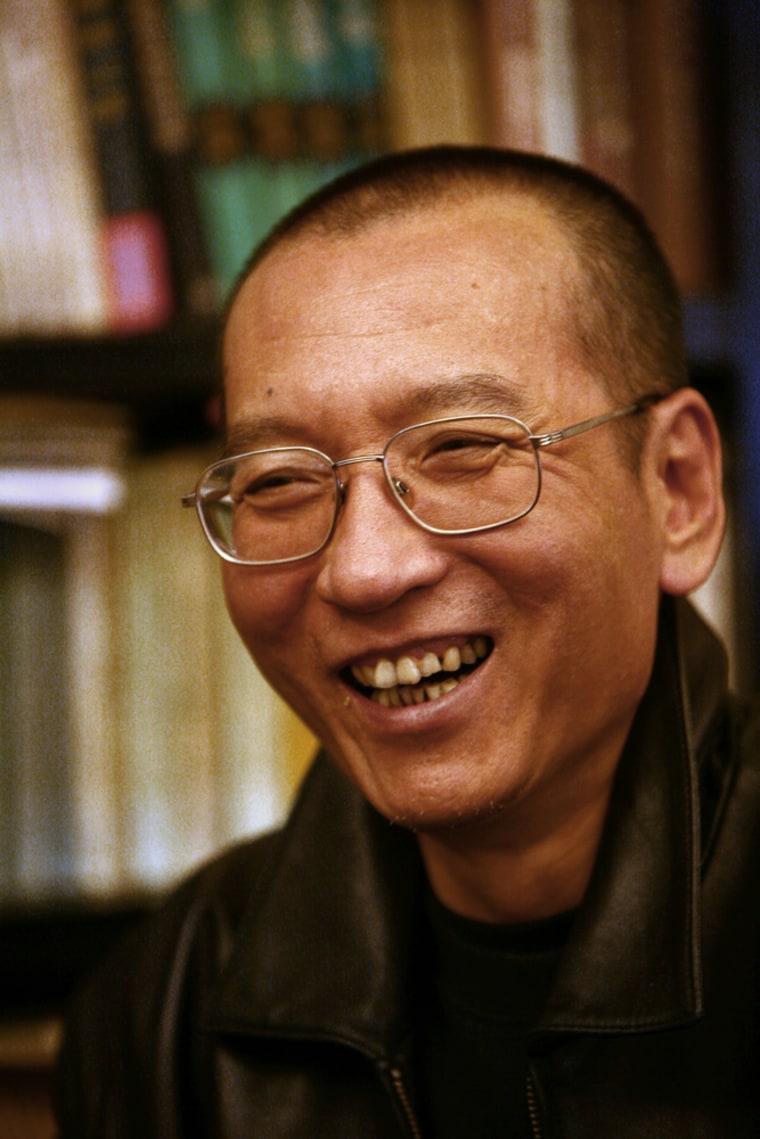China's most prominent dissident Liu Xiaobo has been a thorn in the government's side since 1989 when he joined student protesters on a hunger strike days before the army crushed the Tiananmen Square pro-democracy movement.
Awarded the Nobel Peace Prize on Friday, the 54-year-old Liu was jailed for 11 years on Christmas Day last year for campaigning for political freedoms, with the stiff sentence on a subversion charge swiftly condemned by rights groups, Washington and many European governments.
Liu has been among the most combative critics of China's one-party rule, and his public comments have frequently riled the government, which insists China is a country with rule of law and which respects fundamental human rights.
"Using the law to promote rights can only have a limited impact when the judiciary is not independent," Liu told Reuters in 2006, when he was under another period of house arrest, in comments typical of those which have angered Beijing.
Liu helped organize the "Charter 08" petition which called for sweeping political reforms and was modeled on the Charter 77 petition which became the rallying call for the human rights movement in communist Czechoslovakia in 1977.
Liu had been put forward for the prize by Vaclav Havel, the dissident playwright and key Charter 77 figure who became president of Czechoslovakia after the fall of communism, and by the U.S. chapter of rights group International Pen.
Liu's wife, Liu Xia, told Reuters in an interview earlier this week that while his spirits were good, his health was not great, adding that she had last seen him on Sept. 7.
"Liu Xiaobo's friends often tell me they wanted him to get the prize more than he did, because they think this is an opportunity to change China," she said.
'Inciting subversion of state power'
He stood quietly in a Beijing courtroom last year as a judge found him guilty of "inciting subversion of state power" for his role in the petition and for online essays critical of the ruling Communist Party.
Liu was not allowed to respond in court to the sentence.
His case attracted an outcry from Western government and rights activists at home and abroad.
"He says whatever is on his mind," said Pu Zhiqiang, a friend of Liu's and a well-known Chinese human rights lawyer.
"I don't think a Nobel prize for Xiaobo or any other Chinese person would have a huge impact upon China's human rights situation. But it would certainly spur more people to fight for these values, as much as they possibly can," Pu added.
This is not Liu's first experience of jail.
The former literature professor was jailed for 20 months after the army crushed the Tiananmen protests and then spent 3 years in a "labor re-education" camp during the 1990s, as well as months under virtual house arrest.
China, emboldened by its strong economy and the woes of Western powers, appears to have little patience with pressure over its strict controls on citizens' political activities.
China's Party-controlled courts rarely acquit defendants, especially in politically sensitive cases.
At his trial last December, the court limited Liu and his lawyers to 14 minutes to defend him -- the same time prosecutors spent laying them out the charges, said his lawyer.
"Xiaobo and I were very calm when the verdict was read. We were mentally prepared for it that he would get a long sentence," Liu Xia, who was allowed in to hear the verdict, said at the time.
His writings "had the goal of subverting our country's people's democratic dictatorship and socialist system", read the verdict.
"The effects were malign, and he is a major criminal."
